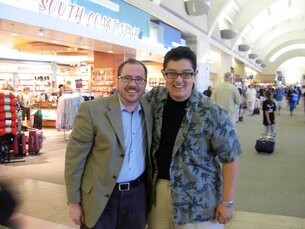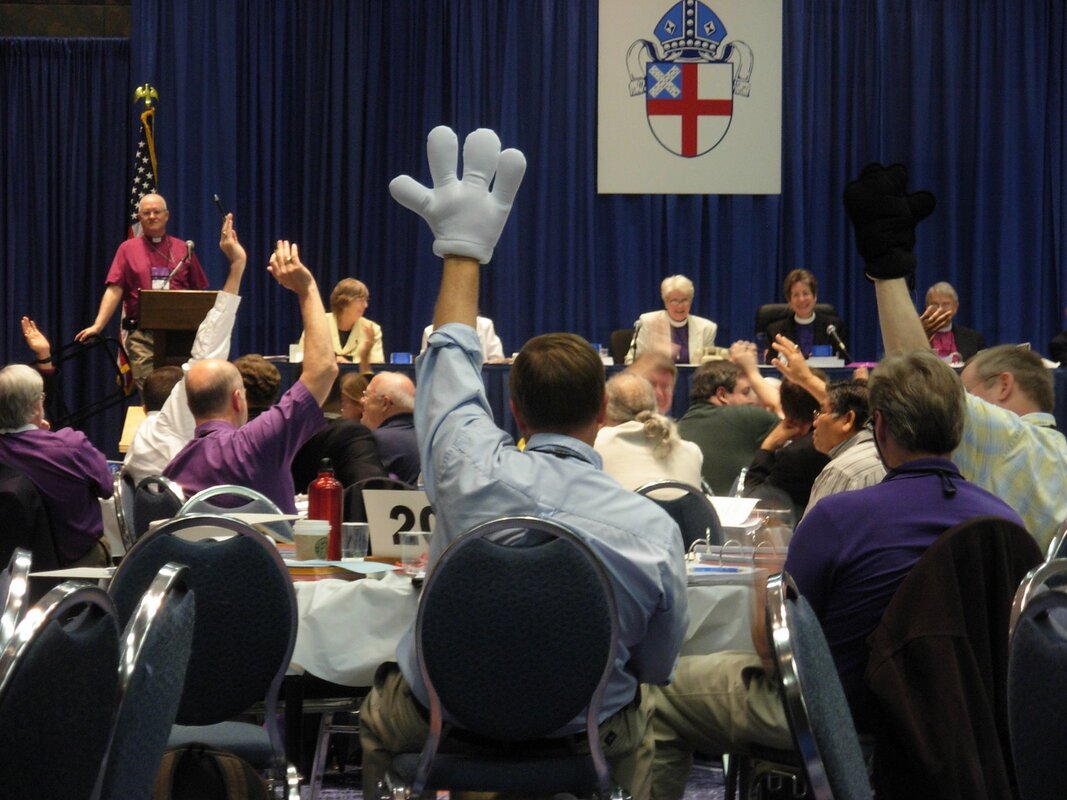The few reviews I’ve read have found their way into the film via people other than Chaz. His partner Jennifer has been a fascinating figure for some, and Cher has for others. I haven’t read any reflections on his siblings, but they would be bridge figures for still other viewers of the film like, say, my sister. It makes sense—if you’re not trans (and even if you are), you might have a hard time relating to Chaz, but you could more easily imagine yourself in the position of those who have a relationship with him.
But as a trans man myself, Chaz was the one on which I knew I would be primarily focused. Because he’s the son of celebrities, having grown up under completely different circumstances than did I or anyone I know, I honestly wasn’t sure how well I would relate. More than that, I was concerned that because of its celebrity connections, this film had the potential to feed into the mass media’s sensationalistic appetites. Given all that, I was fascinated how little this film actually does falls into that trap, and how Chaz and Jenny come across as remarkably down to earth and authentic, very human amid a fair bit of drama. Chaz is very clearly and simply himself, take it or leave it. So too is Jennifer. The two of them have been through a lot both individually and as a couple, and they’re remarkably honest about that.
I was intrigued — and oddly relieved — to hear that there nevertheless were aspects of the film that stretched their own comfort zones when they saw it after the fact. In the interview with Rosie O’Donnell after the Oprah channel premier, Chaz talked about the difficulty at first of seeing an argument that unfolded over kitchen preparations for Jenny’s graduation party. But then as he watched it again, he came to see the argument as a real portrayal of where he and Jenny were at that moment. That comment to O’Donnell conveyed a revealing sense of perspective, a sense that Chaz knows he was in a different space then and will be in a still different one down the road. Comments like those suggest to me that he takes his “becoming” very seriously, and in a much broader and deeper sense than transition alone.
Chaz has been through some seriously choppy life waters, and while he doesn’t put it this way, his remarks about previous eras of his life suggest that he has had to make a practice of seeking perspective. He has had to make a practice of accepting himself for who he is. When he said at one point that he didn’t want to lose anyone because of his decision to transition but knew that he had to make the decision regardless, I thought, yeah, I know what you’re talking about. You don’t get to a place like that, you don’t arrive at such a crossroad, without having done a ton of work-- discernment.
I also appreciated how Chaz did not present himself as speaking for every trans man, let alone every trans person. In one scene, as he spoke at what I believe was a Transgender Day of Remembrance event in West Hollywood, I was impressed with the way he got up and described himself as a newcomer to the community, not presuming to speak for others, and acknowledging that tons of organizing and community building had preceded his arrival on the scene, in many ways making that arrival possible.
That said, there were some assertions in the film with which I disagreed. The misleading graphic listing the side-effects of testosterone failed to distinguish those that affect trans men alone (e.g. the need to monitor liver function) from those that all non trans men have to watch (e.g. cholesterol). I wasn't crazy about the film's repeated use of “breast removal” language; as a result, many reviewers are now using it in a way that can subtly reinforce the judgment that this surgery is merely a form of “amputation” (or, worse, “mutilation"). Simply sticking to the term “chest reconstruction” would have been more straight forward. Chaz also made a few universalizing comments about the relational effects of testosterone, saying things about his insights into male/female difference that reminded me of remarks I once heard on the infamous testosterone episode of This American Life. All I could think was, Stop! Don’t go there! Trans folks don’t know any more about what “really” differentiates the sexes, where “really” means “biologically,” than anyone else. What I think we do have a chance to see at particularly close range is how gender gets culturally organized, how intricately, concretely, differentially, intersectionally each of us is woven into an ever-shifting socio-cultural fabric.
There is so much more to say about this powerful film—more than I have time to write here. But the final thread I find myself pondering is that of narratives—with what stories we narrate our origins, the origins of our self-awareness, the origins of our decisions. Again and again, we were shown images of Chaz as a child on TV with Sonny and Cher, images that had the effect of asking the viewer to consider the narrative s/he supplied for that child. It makes me wonder, what narratives do we assume or project onto one another? How do we shift those narratives when our expectations are subverted? But that then raises the larger question, how do we narrate change without assuming the process moves in a straight line? There is something crucial about what it is to be human that is captured by Chaz’s process of becoming. Not only does it raise the question of how sexual difference fits into—indeed might change — one’s conception of the human person. It also asks us all, trans and non-trans, to consider how the process of becoming itself, how transformation, grounds and indeed defines our humanity.
- The Rev'd Dr. Cameron Partridge



 RSS Feed
RSS Feed